- Home
- Rose Tremain
The Cupboard
The Cupboard Read online
Contents
Cover
About the Author
Also by Rose Tremain
Dedication
Title Page
Chapter 1
Chapter 2
Chapter 3
Chapter 4
Chapter 5
Chapter 6
Chapter 7
Chapter 8
Chapter 9
Chapter 10
Chapter 11
Chapter 12
Copyright
About the Author
Rose Tremain’s novels have been published in 27 countries and won many prizes, including the Orange Prize, the Whitbread Novel of the Year Award, the James Tait Black Memorial Prize, the Prix Fémina Etranger and the Sunday Express ‘Book of the Year’ Award. Restoration was shortlisted for the Booker Prize and was made into a film (1995) and a stage play (2009). Two of her novels, The Colour and Music & Silence, are currently in development as films, and the best-selling The Road Home is being adapted for television.
Rose Tremain lives in Norfolk and North London with the biographer, Richard Holmes.
ALSO BY ROSE TREMAIN
Novels
Sadler’s Birthday
Letter to Sister Benedicta
The Swimming Pool Season
Restoration
Sacred Country
The Way I Found Her
Music & Silence
The Colour
The Road Home
Short Story Collections
The Colonel’s Daughter
The Garden of the Villa Mollini
Evangelista’s Fan
The Darkness of Wallis Simpson
For Children
Journey to the Volcano
For Johnny, with love
and for Bo Dean, with high hopes
ROSE TREMAIN
The Cupboard
‘We are all cupboards, with obvious outsides – which may be either beautiful or ugly, simple or elaborate, interesting or amusing – but with insides mysteriously the same – the abodes of darkness, terror and skeletons.’
–Lytton Strachey
1
At the age of eighty-seven, Erica March died in a cupboard. She wrapped her body in a chenille tablecloth, laid it out neatly under the few skirts and dresses that still hung on the clothes rail and put it to death very quietly, pill by pill.
She left a note, but the note made no mention of her suicide, nor of the cupboard in which she had chosen to commit it. In the room, she had seemed only to make ready for the night, turning down her bed, setting out her indigestion tablets, drawing the curtains and switching on her bedside light.
She had known, however, that it would be Ralph who would discover her body. She had left the door unlocked for him, certain that he would come in next afternoon to say goodbye as he had promised and that when he found her, he would do everything she had asked, exactly as she had asked it. And only after it was done as it had to be done, would he call up his editor at Bulletin Worldwide in New York and say, ‘Okay, Walt. I’m coming home.’
‘I don’t know where you want me to start.’
The voice didn’t sound particularly old. There was an almost childlike breathlessness in it.
‘I don’t know either,’ said Ralph, ‘but I hope you’re not shy of talking.’
‘Shy? I’m eighty-seven, you know.’
‘Old people are sometimes shy …’
‘Are they? They’re deaf, those ones, I expect. I’m blind, without my glasses, but I’m not deaf.’
‘You don’t feel shy of me?’
‘How old are you, dear?’
‘Thirty-five.’
‘Well. I’m eighty-seven.’
He looked up at her. He expected to find her stern, but she was smiling. She fingered her neck. Ralph noticed that her right hand was arthritic, bent hopelessly sideways, but that her left hand was quite straight. It was the bent hand that moved almost constantly.
Ralph smiled, the smile acknowledging his own nervousness.
‘Where would you like to begin?’ he asked gently.
‘Is your machine on?’
‘The recorder? Yes, it’s on.’
‘I don’t know why they sent you.’
‘Bulletin Worldwide? Oh they didn’t send me really. I asked to come.’
‘You see, lots of people have come, over the years. Even a lady from Finland. But I never thought an American would come. I didn’t think I was important enough for one of you.’
Ralph laughed. She was dressed as a gypsy really. That was how he would photograph her, in the bright scarf she wore tied at the nape of her neck, but put on so badly, it hung over one eye. She caught him looking at the scarf.
‘I’m almost bald, you know,’ she said. ‘That’s why I wear it. My hair used to be thick – in big plaits – but now it’s just like duck down.’
‘Begin there!’ he said suddenly. ‘When you had the plaits.’
But she was silent. ‘I had plaits for years,’ she said at last.
‘How many years?’
‘I don’t know. I think as soon as my hair was long enough to plait, they plaited it and I still had a plait going round and round my head when I was seventeen.’
‘What colour was your hair?’
‘Black. Yet both my parents were fair. My father used to call me his little witch.’
‘When you were a child ?’
‘Yes. And I was a child a long time. People were in those days. I think I was still a child after Gully had grown up and become a man and gone away.’
‘Gully?’
‘Gully was made out of the Norfolk clay – that’s what I used to imagine! I used to dream that they dug down and down, making a pond as they dug and then they found him, with his head stuck on sideways. And then they ran a mile when they saw him! Dropped their spades and scrambled off. Because he was odd with his twisted head and no one trusted him at first, except my father who found him, and me.
‘He was scavenging, you see? Hiding and then taking our chicken scraps. My father chased him over two fields and my God, that boy could run! But my father knew better than him how to run on the plough, and he caught him and brought him home. But he wouldn’t talk, wouldn’t say a word till we fed him.
‘In those days, you see, people could get lost. We didn’t have a welfare state – oh no! And Gully was one of the lost. Even the institutions were badly lit. People escaped round corners, into shadows and then they ran helter-skelter and it was impossible to find them. And they could be lost for months, living off pond water and mushrooms like Poor Tom in King Lear. And Gully was one of these Poor Toms. Until we found him.
‘My dad cleaned him up and took him to the orphanage, but Gully hadn’t come from there. He wasn’t registered. So he was brought home again and the questioning began:
“Who’s your Ma, Gully?”
“What’s your Pa do?”
But Gully wouldn’t say. “My name’s Gully” – that was all he’d tell us.
“Come on Gully, then. Tell us where your Ma lives, boy. She’ll be missing you, I reckon.”
Shook his head and shook his head.
“Got to get you home, Gully. Can’t keep you here, with your poor Ma crying her eyes out and missing you and thinking you drowned.”
‘But we never found them, his Ma and Pa. So he stayed with us and I remember the first day I had to take him with me to school, I was ashamed of him. “He’s not my brother,” I wanted to say, “nothing proper like that. We just found him.”
‘And the children were mean and cruel:
“Reckon ’e’s batty,” said John Tomkins. “What you doin’ with a batty bor, Erica girl?”
“He’s not my brother …”
“
Bet ’e don’t know no sums nor nothin’ like that.”
“He’s not my brother. We just found him.”
“Found him? Found ’im where, eh girl? Found ’im in a rat hole? Found ’im in a pig’s arse, eh eh?”
‘They all crowded round Gully and me. They were staring at us and laughing. And then I remembered what my father had said to me when he gave us our dinner bundles: “I’m counting on you, girl” he said, “because children can be mean mucks and yew don’t forget it. So you make sure that bor don’t take no harm.”
‘So I whispered something to Gully. I was punished afterwards for what I whispered and stuck in a corridor all afternoon waiting for the schoolmistress to beat my hands with a ruler. My hands got so cold and numb in that corridor, I couldn’t feel the beating when it came. And anyway who cares about beatings?’
Ralph waited.
Erica March had shut her eyes. Her head had dropped and she seemed quite suddenly asleep. He watched her. The tape recorder hummed on the table between them. He was leaning forward to switch it off when he heard Erica chuckle.
‘We had a lark that first morning at school! And after that, things were never so bad for Gully, even though they were bad enough. You see, I’d never liked big John Tomkins and his gang and I wanted them punished good and sound for their sneering. So I whispered to Gully: “Get your willy out and piss at them!” And he did it right away and splashed them all – John Tomkins and Charlotte Bunn and thin Sonny Aldous. And they went crying, telling the teacher, so I nudged Gully, “for heaven’s sake get that put away ’fore Miss Miller sees it.”
‘Gully came to live in our house, just before that time. Our house was an old Suffolk farmhouse with half the farm animals wandering in and out. It was a farm of bad-tempered animals which kicked and pecked! Even the two cows were standoffish and when I tucked my head in to milk them they’d open up their bowels and the mess would flop onto my boots. I told my father, “I’ll never be a farmer when I’m growed up!”, but he took me onto his knee and held me and said “nothing to give you, girl, no money nor grand education, so yew take the farm when I’m gone an’ be grateful.” And I expect he cried, thinking of Ma and Ma’s blue skirts in the forget-me-not field. And I snivelled round his collar, which was a straight-up band with no proper collar on it and always grimed as if he never washed his neck. But then he’d stop his crying and blow his nose and say “Where’s Gully, Erica? Not lost again, is he? Not gone again?”
‘Gully only ran away from us once. He ran to a clay pond that was almost dry and hid. And when I found him there, it was then that I thought, this is his real mother, this pond. This is Gully’s flesh. He’d thrown his boots into the water and I knew this was a dreadful ungrateful thing, because my father often and often said, “Shoe leather’s dear and you’d best take care of it. Boots is not stoons to be let lyin’ or lost.” So I yelled at Gully. “My dad’s gone white with dreams of you drowning!”
I said, “He could die from being so white. So you come back, Gully bor before I turn you into a maggot!”
‘He let me run on towards the farm and then I saw his lopsided shadow following me and after that he never ran away again to the pond. But nor did anyone come for him: no mother or father or person from the orphanage. So he became ours and we called him Gully March.
‘And when I think about my child’s lifetime, I see him always. Our Gully. He had black, tight curls and a man’s eyebrows that met over his nose. The first sum I taught him was, “How many inches are between London and Newmarket?” But I don’t remember the answer now. And the second sum I taught him was, “A rich nobleman in Spain owns twenty-five castles and in each of the twenty-five castles are twenty-five rooms and in each of the twenty-five rooms are two sacks and in each of the sacks are one hundred and forty guineas. How many shillings, then, does the rich nobleman possess?” And all of this we worked out on the kitchen table, with a big drawing of the nobleman and his castles to help us. But the answer came to so many shillings, we didn’t believe it.
‘But Gully did begin to learn a few things. He never understood anything which began “If a man throws a girdle of barleycorns round the earth …” because he had no real notion of what the earth was – not then. And he wrote his numbers so blackly, they looked like a pirate’s hand. But when he came to us, he couldn’t write at all and I think it was we who taught him most because Miss Miller was afraid of his big head (I suppose she thought he’d butt her in the stomach like a bull and knock her over!) and she put him in a corner of our classroom and forgot about him most of the time. And he often stayed away from school to help my father: at harvest time and with the sugar beet and even with the fencing and ditching, because he was strong. And I remember that when I was at school and I saw the sunlight outside, I longed to be in the cornfield or on the cowshed roof and put a curse on God for making me a girl.
‘He had the room above mine in our house. He cried at night and we never found out why. I put wool in my ears and one of my dolls, Ratty May, over my head to blot him out. Perhaps he cried in his sleep like Bernard, I don’t know, because he never told us. Perhaps he had dreams of being lost again with no boots. Perhaps his old lopsided head remembered a time when it pushed out of the clay like a mushroom. Who can say?
‘He was ten when we found him. His hands were wide and red like butcher’s meat and perhaps it was because of this – because of his hands – that when he left school he became a butcher’s apprentice. He didn’t know how to care for his things or say thank-you for anything my father bought. And one night, I walked with my father to the forget-me-not field and in the dark he said, “I reckon he’s got to go, that Gully.” But I’d grown fond of Gully by then. We had secrets, I think, one or two and I liked doing sums with him and I’d got tuppence or threepence saved for his Christmas present. So I said “No!” I said “If Ma was alive she’d keep him with us and see to him.”
‘But this was a terribly unkind thing to say. It turned my father to stone – absolutely to stone – and he couldn’t move. He lay down on his face and the moon came up and shone on him and I beat his back with my fists and shouted at him. But he couldn’t hear me. So I ran and ran to the house and snatched Gully by the hand and we tore back to where he lay and tugged him and lugged him over the field and up the lane and over the yard, till we had him lying down by the fire.
‘Gully ran a mile for the doctor and the doctor came at midnight and gave him brandy. And after that, my father never again suggested that Gully should leave us. So Gully stayed and on his eleventh birthday I gave him an old map of the world so that he could throw a girdle of barleycorns round it.’
On this first day, Erica March had prepared wine and biscuits for her American visitor. It was about three in the afternoon. She watched him as he poured the pale pink wine, handed her the plate of sweet biscuits.
‘Tomorrow, we’ll have vodka, if you like,’ she said, ‘and caviar. What about that?’
Ralph shook his head. ‘On my last day, we might have caviar and vodka.’
‘When I was a child, we were told that all Americans were rich. I think I imagined everyone owning twenty-five castles full of precious things and gold pieces and bones of Indians. But now you’re not rich, are you? Only some of you, with homes in Bel Air.’
‘I’m not rich,’ said Ralph. ‘I have quite a bad apartment in Brooklyn. Walk-up. Repairmen won’t walk up to repair it.’
‘But you’re paid well, aren’t you,’ and she looked round her little room, ‘for this sort of assignment?’
‘It depends.’
‘On what?’
‘On what I make of it.’
‘Don’t you know then, dear? Isn’t it going to be something for your magazine?’
Ralph hesitated. ‘I’d like to stay in London for quite a while,’ he said. ‘I’d like to come and see you every afternoon, and you can talk – about anything you like, about your work and about your life, anything you remember – and then I’ll know what I’ve got
.’
Erica looked at him sternly. ‘They wrote a lot about me at one time. After The Hospital Ship became popular, they used to put me on panel games. But then they forgot me.’
‘I know,’ said Ralph.
‘I suppose you’re reviving me, dear, are you? Before I pop off? I think it’s quite clever, because I can’t go on much longer, can I? I might even die before you’ve finished.’
Ralph smiled, took a sip of the wine.
‘I’m serious,’ said Erica, ‘I say goodbye to everything every night now, just in case. I say: “Goodbye square which is my room, goodbye London, goodbye pigeons on my ledge, goodbye Ratty May, goodbye books, goodbye noisy lavatory, goodbye lamp, goodbye cupboard …”’
‘Do you?’
‘Oh yes. Because at my age, death doesn’t need to send an army, does it? It sends something rather quiet, I imagine, like a paper dart.’
‘You seem very strong, really.’
‘Do I? Well, I think I am most days. Not very strong when I wake, so that now and again I think I’ll have to ask Mrs Burford to stay the night and bring me something in the mornings. But this would be inconvenient for her and I’ve always hated the idea of servants. So I go on. By the afternoons, I usually feel all right.’
‘Have I tired you today?’
‘Oh lord no, dear! I’ve tired you, I expect, with all my chat. But it’s a very long time since I talked about Gully. Or even thought about him. And yet for years – until he came to mistrust me – I treasured him. Do you understand what I mean? I wasn’t in love with him or anything like that. Heavens no! But he was a wedge in my heart.’
Erica reached out with her left hand and turned on a Tiffany lamp. The light was the same colour as the wine. Behind her head, the sky at the window was deep blue.
Ralph got up. The camera held at his brown eye didn’t belong to him. So that he would never be tempted to forget this fact it was labelled in red lettering “Property of Bulletin Worldwide Inc.”, but he held it carefully and it brought him rewards which were his own. In front of the darkening window, half of Erica’s face was lit by the lamp.

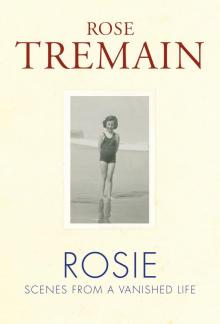 Rosie
Rosie The Garden of the Villa Mollini
The Garden of the Villa Mollini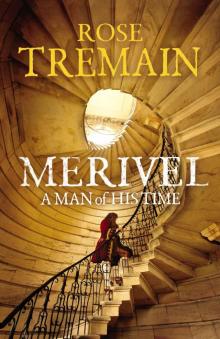 Merivel: A Man of His Time
Merivel: A Man of His Time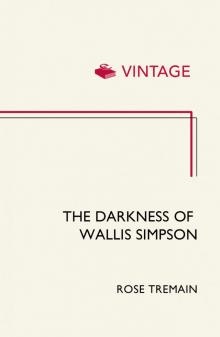 The Darkness of Wallis Simpson
The Darkness of Wallis Simpson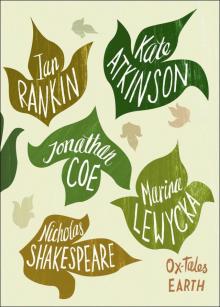 Earth
Earth Sacred Country
Sacred Country The Swimming Pool Season
The Swimming Pool Season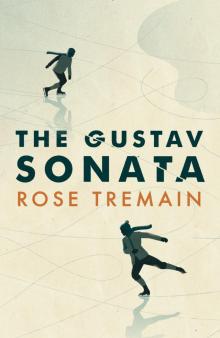 The Gustav Sonata
The Gustav Sonata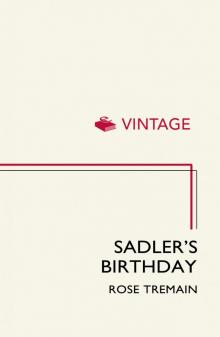 Sadler's Birthday
Sadler's Birthday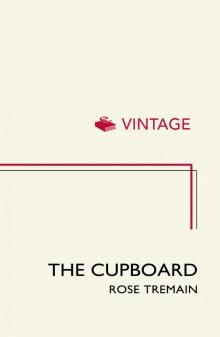 The Cupboard
The Cupboard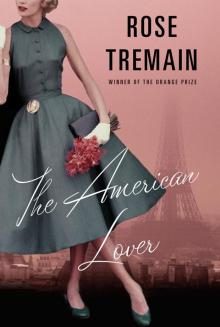 The American Lover
The American Lover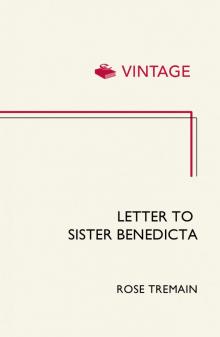 Letter to Sister Benedicta
Letter to Sister Benedicta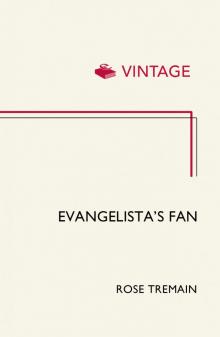 Evangelista's Fan
Evangelista's Fan Restoration
Restoration The Road Home
The Road Home The Colonel's Daughter
The Colonel's Daughter The Way I Found Her
The Way I Found Her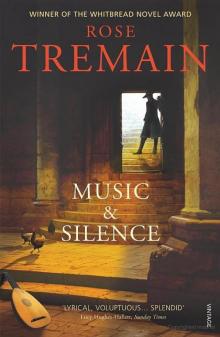 Music & Silence
Music & Silence